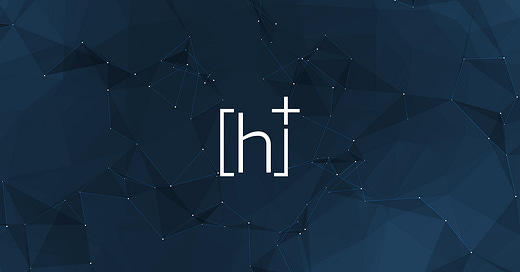H+ Weekly - Issue #397
This week - ChatGPT takes on an astrophysics exam and it is banned from NYC schools; AI is going to be a legal assistant in court; and more!
🦾 More Than a Human
Lab-grown retinal eye cells make successful connections, open door for clinical trials to treat blindness
Researchers have made dish-grown retinal cells connect with other cells, opening a way to use lab-grown eye cells to treat blindness.
🧠 Artificial Intelligence
▶️ How Does A.I. Handle An Astrophysics Final Exam? (28:27)
Some people predict that ChatGPT can be used to cheat on exams. Prof David Kipping from Cool Worlds decided to check that and challenged ChatGPT to solve an introductory astrophysics exam. The result - ChatGPT failed, scoring 73.9%, slightly below average human student.
NYC Bans Students and Teachers from Using ChatGPT
New York City’s education department has banned access to ChatGPT, a chatbot that uses machine learning to craft realistic text, out of concern for “safety and accuracy.” The ban will apply to devices and internet networks belonging to the education department. Individual schools can request access to ChatGPT for the purpose of studying AI and technology-related education, according to a department spokesperson.
AI will be used as legal assistant in court for first time ever in February
In February, an AI lawyer from DoNotPay will advise a defendant in US court for the first time in history. The AI will run on a smartphone located in the defendant’s pocket and, through an earpiece, will advise them on what to say after listening to the arguments presented during the hearing.
Apple launches AI-powered book narrations
Apple has launched AI-powered audio narration for select titles on Apple Books. On its website for authors, the company says that this feature will help independent authors who might not be able to convert their titles to audiobooks because of “the cost and complexity of production.”
🧬 Biotechnology
Gene-editing gets fungi to spill secrets to new drugs
A high-efficiency gene-editing tool can get fungi to produce significantly more natural compounds, including some previously unknown to the scientific community, say researchers. It is the first time that the technique, multiplex base-editing (MBE), has been deployed as a tool for mining fungal genomes for medically useful compounds. Compared to single-gene editing, the MBE platform reduces the research timeline by over 80% in equivalent experimental settings, from an estimated three months to roughly two weeks.
H+ Weekly is a free, weekly newsletter with the latest news and articles about AI, robotics, biotech and technologies that blur the line between humans and machines, delivered to your inbox every Friday.
Subscribe to H+ Weekly to support the newsletter under a Guardian/Wikipedia-style tipping model (everyone gets the same content but those who can pay for a subscription will support access for all).
You can follow H+ Weekly on Twitter and on LinkedIn.
Thank you for reading and see you next Friday!




